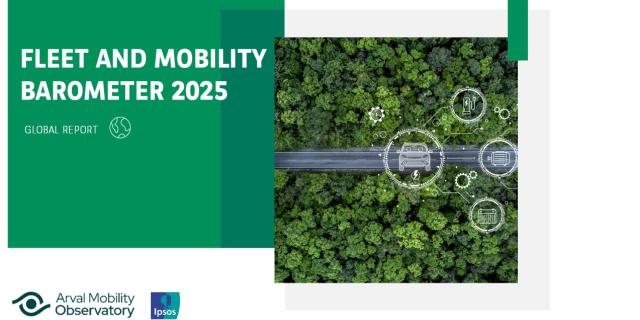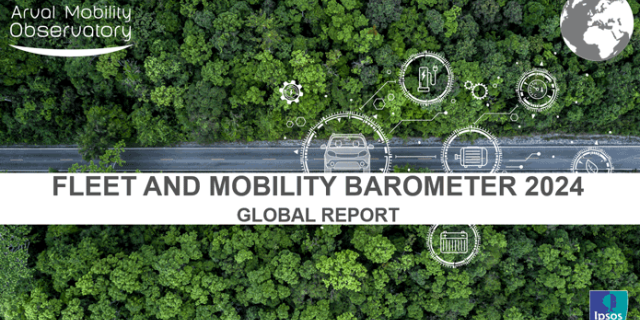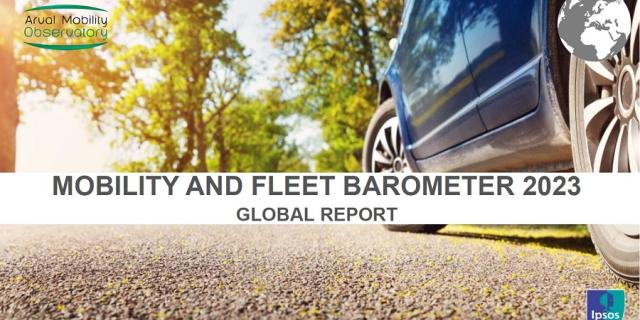ARVAL AROUND THE WORLD: LATIN AMERICA
We talk to Ricardo De Bolle, Arval Director of Global Business Development for the Latam region, based in Brazil, about fleet management in Latin America.
What is the main difference between fleet management in the US and in Latin America?
Really, it is a cultural one. Many Latin American countries have suffered from high inflation in the recent past – in Brazil, it was 200% within living memory – so people have tended to buy vehicles because they were something of a safe haven for their money. These are countries where people like to own assets as a result, so introducing them to leasing requires them to completely change their mindset. That’s why conversations about fleet almost always start with the subject of finance.
Are Latin American fleet managers aware of European fleet management best practice ideas?
There is very much a localized fleet culture and there are even very big differences between certain Latin American countries with Brazil being much more applied in its approach than, say, Peru, Chile and Argentina. Also, Mexico has a big influence on how business is done in this part of the world. For Latin American fleets, Brazil and Mexico represent best practice benchmarks.
What kind of differences exist between the Latin American countries?
There are really quite large variations in local legislation, tax and other infrastructures when it comes to company vehicles. For example, in some places there are quite strong incentives to drive a pick-up or an SUV rather than a car because they don’t attract any personal taxation.
How do the day-to-day lives of Latin American fleet managers differ from Europe?
There is a fundamental difference in that many of the suppliers of what we would consider to be fleet services are provided by what Europeans would think of as daily rental companies. This means that there is something of a cultural difference in how fleet services are delivered. However, an important similarity to Europe is that businesses that use fleet management tend to pay for their services bundled into a single monthly payment, something that is less common in North America, for instance.
What one thing would improve fleet management in Latin America?
Reliable data is hard to come by. In financial terms, fleet expenses are not often split down into areas like fuel and service and maintenance, so it is difficult for many fleet managers to know where to concentrate their efforts. A lot of our activity is based around helping companies to record their expenses in a more thorough and accurate manner, because that is really the starting point for strategies that make fleet operations more efficient.
What are the main fleet vehicles that are used in Latin America?
Things are changing quickly in terms of the vehicle market. Although many of the models that are sold here would be thought of as quite basic by European buyers, they are improving at a pace. There is a big emphasis on safety, reliability and toughness. Interestingly, the energy transition does not concern Latin America in the same way as Europe and Ethanol is considered a “cleaner” energy fuel compared to gasoline and diesel.
What is it like working with Element?
Element are our global partner in Latin America, USA and Mexico play and important role on decision made in Latam. Our relationship is very good, a result of the two businesses having worked together for decades. My role is all about introducing Arval expertise into Latin American fleets that operate in Europe and North America. Really, I work to bring the two cultures together to deliver the results that everyone is looking for.
Do you enjoy working in Latin America?
Yes, from a personal point of view, it is a vibrant and fascinating part of the world and, from a business perspective, people are open to ideas and you can make a large and positive impact on their fleet operations very quickly.
Yes, from a personal point of view, it is a vibrant and fascinating part of the world and, from a business perspective, people are open to ideas and you can make a large and positive impact on their fleet operations very quickly.
What is the Element-Arval Global Alliance?
The Element-Arval Global Alliance is the longest-standing strategic alliance in the fleet management industry - managing in excess of three million vehicles in more than 50 countries.
Advantages of the Element-Arval Global Alliance:
• Our extended and expanding global scale.
• The quality of service in the delivery of harmonized products.
• Optimized innovative services with customization to meet local demand.
• A unique methodology to manage accounts on a local and international level.
• Digital tools that provide global visibility of your fleet.
As the worldwide leader, the Global Alliance has the experience, expertise and resources to optimize your fleet and support mobility strategy on all continents.
www.elementarval.com














